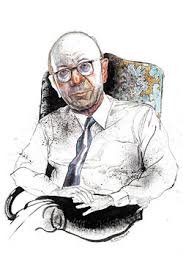
A few weeks ago I was walking through the streets of New York with a good friend, Jessie Freedman. He’s a young Off Broadway playwright whose new wave Avant Garde theater has been written up in The New York Times and other places. When the topic of what or who I was interested in these days came up, I said: Neil Simon. I recalled how many of his plays were cast not just on Broadway, TV, and on the screen but also in Jewish Community centers around America (my mother acted in a few of them in my local Jewish community in Upstate, NY). I told Jessie that I have noticed that the schlemiels in Neil Simon’s plays have gone un-noticed and have been poorly discussed. He agreed. And then we both agreed to not only go back through his work but to even start a reading group between Toronto and NYC.
Today, after I heard the news that he passed, I was besides myself and realized how needed such a study is today. It seems to have come too late, but now is a good time to figure out what made his comedy work. As Variety Magazine notes, he was the “King of Comedy Playwrights.” And – I would add – he was the king of schlemiel comedy (move over Woody Allen and Larry David).
I’d like to make a few cursory observations about his work. While he is most known for The Odd Couple and Barefoot in the Park, he was the author of countless plays that are equally laudable such as Brighton Beach Memoirs and Lost in Yonkers. Many of his plays were turned into films and most of them cast the main characters as schlemiels. To be sure, he saw himself and much of post-WWII American Jewry in this way. Jewish American men play vulnerable schlemiels in most of these plays. In Brighton Beach Memoirs – which are a reflection of his own life – we see that the schlemiel, for Simon, was to be seen in the context of the Jewish American family (mainly hailing out of New York).
He also adapted – through screenplay – the schlemiel classic The Heartbreak Kid (1972), which was written by Bruce Jay Friedman. It casts the schlemiel in a more dark light – as does much of Bruce Jay Friedman’s dark schlemiel comedy (as in his book, Stern or A Mother’s Kisses).
Nearly forty years later, in 2007, the film was redone but cast Ben Stiller as the schlemiel character. Once again showing how big the schlemiel character has become in Hollywood in particular and America in general.
But there are also moments when Neil Simon sees women as schlemiels as in Lost in Yonkers. The childlike aspect of Bella – the main character – is endearing. Like the children she takes care of they all discover things – as it were- for the first time. This casts a much different, much more positive light on the character and shows that it is not bound to any one gender.
For Simon, the schlemiel character – it seems – gives wonder to American Jewish life and the family. It shows the beauty of life in America for Jews as they discover how to fit in – in their own way. It also shows the anxiety of Jews trying to adapt to American culture and the failures by way of the cuckold (an old theme no less, mined by Bruce Jay Friedman, Woody Allen, Ben Stiller, Seth Rogen, Adam Sandler, Amy Shumer, and many others).
But the important thing to note is that for Simon the schlemiel character – by and large – emerges out of a comical family dynamic and is an endearing character. (Hannah Arendt saw this as one this characters main features – whether in Heine or Chaplin. The same can be said of what we find in the novels of Sholem Aleichem, Mendel Mocher Sforim, I.B. Singer et al.) There is something particular about the schlemiel and its Jewishness for Simon, yet, at the same time, there is something in this character that can appeal to all Americans. If there is any litmus test for this, his numerous awards, films, TV shows, and performances on and off Broadway show us that his characters were seen again and again by Americans and have – I would argue – become a part of the American sensibility.
Now that he has passed and in the wake of these reflections I realize how important it is to make a deep study of his work. Schlemiel Theory has its work to do. Now is the time to figure out why his work has such a deep impact on Jews and on Americans and his legacy to Jewish American theater. May his memory be for a blessing.
